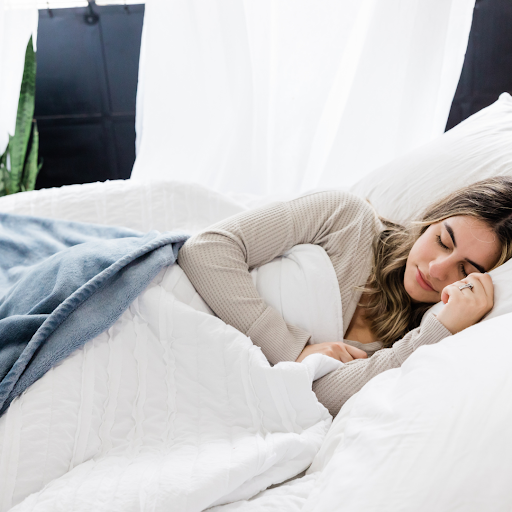
Have you ever woken with a sore and stiff jaw or neck, or do you constantly experience morning headaches? Maybe your loved one has let you know that they’ve heard or seen you clenching and grinding your teeth at night. If this sounds like you, chances are, you might be suffering from nocturnal bruxism, or the involuntary grinding and clenching of teeth. While everyone clenches their jaw from time to time, repeated grinding of teeth at night can cause long-term damage, not to mention giving you some bad nights of sleep.
Millions of adults and children experience nocturnal bruxism, and it’s important to address it as soon as you become aware of it. During sleep, bruxism can be triggered by numerous factors such as hyperactivity, sleep apnea, or acid reflux. Teeth grinding at night can lead to tooth damage in the form of cracks and chips in your teeth, it can cause gum recession, and can even lead to long term problems with your TMJ, which is the joint between your jawbone and skull.
When your teeth grinding occurs in the middle of the night, you may be wondering what you can do to prevent it. We’ve listed some options here that we hope you’ll find helpful for protecting your teeth from your nocturnal bruxism and lead to a more peaceful night’s sleep:
- Relax your jaw muscles before bed.
Place a warm washcloth against your cheek right in front of your earlobe. Rubbing and massaging your jaw will also help relax the muscles and release any tension that’s built up during the day.
- Be more aware of your day-time clenching.
If you notice yourself clenching your jaw during the day, train yourself to relax those muscles. Putting the tip of your tongue between your teeth is a great way to actively help your jaw muscles relax.
- Reduce the amount of caffeine and alcohol you drink.
Caffeine and alcohol have been shown to be linked to bruxism. It’s best to avoid or reduce your consumption of these if you are struggling with teeth grinding at night.
- Change your sleeping position.
If you’re sleeping on your sides, you may be putting too much pressure on your jaw. Sleeping on your back is the best position, so try to avoid side or stomach sleeping, and make sure you are getting adequate support from your pillow.
- Avoid chewing gum / chewy foods / or biting on anything that isn’t food.
Chewing on hard objects or chewy candy and food trains your jaw to clench through repetitive motions, so avoid consuming these types of food.
- Mouthguards.
Mouthguards can be worn at night to keep your jaw in a certain position and to create a barrier from teeth grinding. Some are over-the-counter, but your dentist can also make a custom mouthguard made just for your teeth.
- Stress Management.
Bruxism is often linked to anxiety and stress. Managing your stress levels is key to minimizing your risk of teeth grinding. Try exercising as a way to release stress, or mindful techniques like yoga, meditation, or even going to therapy.
- Biofeedback.
Biofeedback uses monitoring equipment and procedures to teach you how you can control your jaw’s muscle activity.
When it comes to bruxism, you’re not alone. Many people suffer from this condition and the loss of good sleep, but you don’t have to go on living with it! At Simply Smiles, we are here to guide you towards the best path for overcoming your nightly teeth grinding. Call our office today and we’d love to discuss all your options for minimizing and preventing your bruxism and protecting your smile and sleep!
Sources:
https://spiritdental.com/blog/categories/dental-health/helpful-tips-for-nighttime-teeth-grinders
https://www.sleepfoundation.org/bruxism/tips
https://beautifulsmilesdentalcenter.com/2017/12/20/overnight-teeth-grinding/
https://www.webmd.com/oral-health/guide/teeth-grinding-bruxism
https://www.healthline.com/health/how-to-stop-grinding-teeth#seeking-help
https://www.209nycdental.com/7-ways-to-stop-grinding-your-teeth/
https://www.mayoclinic.org/diseases-conditions/bruxism/diagnosis-treatment/drc-20356100
